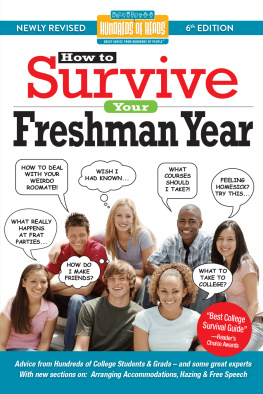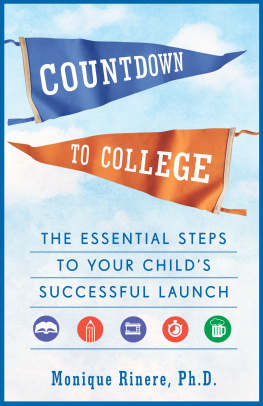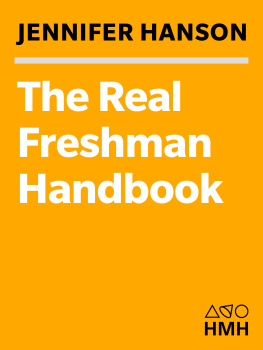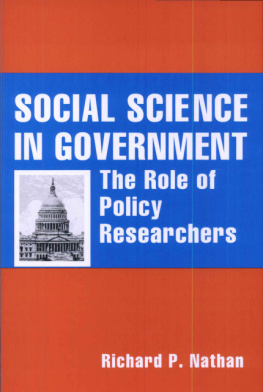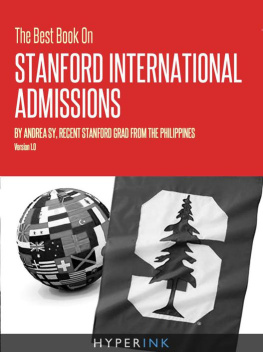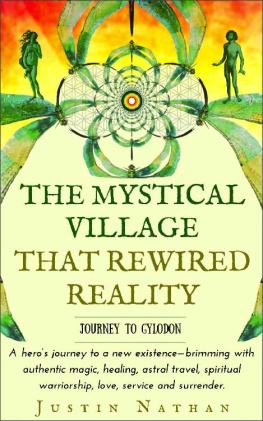Table of Contents
Praise for My Freshman Year
This volume is a page-turner from beginning to end.... Traversing topics as far ranging as friendship, social life, engagement in university classrooms, dorm life, and the experiences of the racial and ethnic minorities as well as those of an increasingly growing number of international students, Nathan uses her well-honed anthropological skills to study the university as village. Faculty, students and parents alike will find this volume illuminating as we get up close and personal with those undergraduates that attend our large state institutions.
Lois Weis, author of Class Reunion: The Remaking of the American White Working Class
Nathan is most compelling when relating her own preconceptions as a professor to her new life as a student. From scheduling constraints, to riding the bus system, to balancing difficult required courses with easier electives, the realities of being a college student surprise Nathan and will be a welcome reminder to many readers.... Nathans experience reminds the rest of us to be compassionate.The Virginia Quarterly Review
This is an outstanding book ... and I know it will transform and inspire my teaching and writing. Rebekah Nathans projectto go undercover as a college student, living in a dormis bold and intriguing.... My Freshman Year is funny, sad, true, eye-opening, and sometimes mind-boggling. If I knew the author, I would congratulate her with great warmth and enthusiasm.
Emily Toth, Louisiana State University, author of the Ms. Mentor column, Ms. Mentors Impeccable Advice for Women in Academia, and Unveiling Kate Chopin
The first thing to say about this book is that there are very few books like it. The authors account of living in the dorm and taking classes on a campus where she had worked as a professor for many years is fascinating. From her experience enrolled as a freshman and through her anthropological lens, we learn how different the world of students is from what professors imagine it to be. I think anyone with an interest in undergraduate lifewhether in academe or notwill want to read it and enjoy it.
Margaret Eisenhart, University Distinguished Professor and Charles Chair of Education, University of Colorado at Boulder
My Freshman Year is unpretentious and yet full of insights and sharp observations. It is novel, spare and speaks (delightfully) to many interests. Rebekah Nathans careful fieldwork and savvy topical selection provide a moving and important take on American college life.
John Van Maanen, Massachusetts Institute of Technology
Using her skills and insights as an anthropologist, faculty-turned-freshman Rebekah Nathan gives us a unique look into the student experience in the first year of college. She provides an unfiltered view of the cultural norms, social rules, and community expectations faced by our new students. It is an intriguing read for all who work with undergraduates today.
Susan H. Murphy, vice president, student and academic services, Cornell University
This modestly presented book is a devastating report from the other side of [the classroom], an account of the realities of student life that generates real understanding and genuine compassion.... [My Freshman Year is] an important and intelligent guide to the modern consumer oriented university campus.
The Times (London)
PENGUIN BOOKS
MY FRESHMAN YEAR
Rebekah Nathan is a pseudonym for Cathy Small. She is a professor of anthropology at Northern Arizona University and author of Voyages: From Tongan Villages to American Suburbs (1997).

PENGUIN BOOKS
Published by the Penguin Group
Penguin Group (USA) Inc., 375 Hudson Street, New York, New York 10014, U.S.A.
Penguin Group (Canada), 90 Eglinton Avenue East, Suite 700, Toronto,
Ontario, Canada M4P 2Y3 (a division of Pearson Penguin Canada Inc.)
Penguin Books Ltd, 80 Strand, London WC2R ORL, England
Penguin Ireland, 25 St Stephens Green, Dublin 2, Ireland
(a division of Penguin Books Ltd)
Penguin Group (Australia), 250 Camberwell Road, Camberwell,
Victoria 3124, Australia (a division of Pearson Australia Group Pty Ltd)
Penguin Books India Pvt Ltd, 11 Community Centre,
Panchsheel Park, New Delhi -110 017, India
Penguin Group (NZ), cnr Airborne and Rosedale Roads, Albany,
Auckland 1310, New Zealand (a division of Pearson New Zealand Ltd)
Penguin Books (South Africa) (Pty) Ltd, 24 Sturdee Avenue,
Rosebank, Johannesburg 2196, South Africa
Penguin Books Ltd, Registered Offices:
80 Strand, London WC2R ORL, England
First published in the United States of America by Cornell University Press 2005
Published in Penguin Books 2006
10 9
Copyright @ Rebekah Nathan 2005
All rights reserved
eISBN : 978-1-101-04250-2
1. College studentsUnited StatesSocial conditions21st century. 2. Adult
college studentsUnited StatesSocial conditions21st century I. Title.
LB3605.N34 2005
378.198dc22 200502213
The scanning, uploading and distribution of this book via the Internet or via any other means without the permission of the publisher is illegal and punishable by law. Please purchase only authorized electronic editions, and do not participate in or encourage electronic piracy of copyrighted materials. Your support of the authors rights is appreciated.
http://us.penguingroup.com
Preface
The idea for doing this research really gelled after I audited a couple of courses for my own continuing interest and education. In two different semesters I sat in on a course offered in other departments, so naturally I went to class regularly, did course readings, and occasionally raised my hand to ask questions like everyone else in class. I discovered that in doing so I inherited a sort of transactional student identity. That is, because I related to the teacher as if I were a student, and behaved as students do, my default identity became that of a student. I found out quite unwittingly that if I walked like a duck and quacked like a duck ... then people thought I was a duck. My fellow students began sharing opinions and gossip with me that I would never hear as a professor.
That was the beginning of my realization that, even after my fiftieth birthday, I could still be a student, and be treated by other students as, more or less, a peer. This new identity seemed essential to my budding research idea. While others had successfully studied campus life as professors, I wanted to see the campus through student eyes to the extent that was possible. I certainly did not want to relate to my classmates or residence hall mates or professors under a professorial identity. It was dramatically apparent to me that I heard a very different set of conversations when I audited classes than when I taught them, and I didnt want my research to digress into the often scripted dialogues that characterize professor-student discourse. I felt that the world I wanted to penetrate would be precluded if I were simply an interested professor doing research on students. I decided then to become a student by formally applying to the university, by registering for and taking courses, and by moving into a dormhence setting the stage to view undergraduate life as both an observer-interviewer and a participant.
A book about a professor who goes back to school as a freshman at her own universitynot telling anyone that shes a professorraises many questions, especially for ethnographers and students of ethnography. Can an anthropologist legitimately go undercover? Did the researcher lie to people about who she was? Did the university give her permission to do this? How did she deal with the requirements of her Institutional Research Board? Did anyone discover her real identity? And then there are methodological and presentational questions. Can a researcher who has not fully disclosed her identity record


